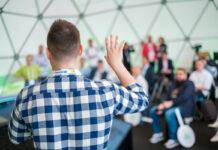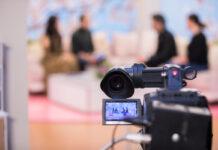Chapter Seven
Dig Deeper
Part One
Read Story Instead
Prefer reading instead? Here's the text version of your lesson.
Questions & Activities
Reflect on your lesson with short activities, or by exploring referenced articles, featured podcasts, term definitions, and more!
Hot Take
Reflection
- Have we forgotten the value of mainstream media or has mainstream media lost its values?
- How important is it to think critically about the information we consume? Can the media help us be better critical thinkers?
- Can good questions overcome bias or will bias always filter through in the questions we ask?
- Are we equipped to separate good research from fake news if how we see the world is so clearly coloured by our biases?
Did this story leave you with a question?
The best questions will be answered by Environment and Climate Change Canada’s scientists on video just for you! Make sure you include your name and school.
Part Two
Bias in Science Media
How do you identify bias in science-focused media stories? Why is it important to understand? We're here to help you acquire the tools.
Self-Reflection
Take the time to re-reflect on your values and upbringing in order to better understand your biases and how they influence your opinions.
Bias Analysis
Is your final project being influenced by your bias? Is that a good thing? Is that a bad thing? Time to analyze your project for blind spots.
Find Common Ground
Find a story related to your final project with a message you instinctively disagree with and work to find positive attributes.
The Art of Disagreeing
Is it possible to disagree respectfully? Absolutely! Learn and practice how to disagree without being disagreeable.
Fake News
What is fake news? How to determine a reliable source of information? We'll help you separate fact from fiction.
Further Exploration
Latest News
Exciting Announcement: Section1.ca!
Tomorrow, We’re Still Canada
Alberta Announces Province-Wide Vote on Immigration Policy
Featured Podcasts
Danijela Puric-Mladenovic
Resources From the Curated Library
8 remarkable social innovation prototyping methods and tools
Working Prototypes Vs. Ideas: Which Should Entrepreneurs Pitch?
Insights from one of the most successful interviews in TV news history
How Social Media Has Changed How We Consume News
Observations on the Fact/Opinion Distinction in Expert Opinion Evidence
Audiences value trust components differently depending on the news source and topic
Additional Resources
- Awareness of Our Biases Is Essential to Good Science
- FAIR
- How scientists fool themselves – and how they can stop
- Bias in science: natural and social
- CIVIX - News Literacy
- MediaSmarts - Canada's Centre for Digital and Media Literacy
- The 4 common biases that lead to bad science. (They're likely not what you think.)
- Types of Bias
- Everyone is a Little Bit Biased
- You're Biased and Here's Why it's a Good Thing
- Snopes - Fact Checker





